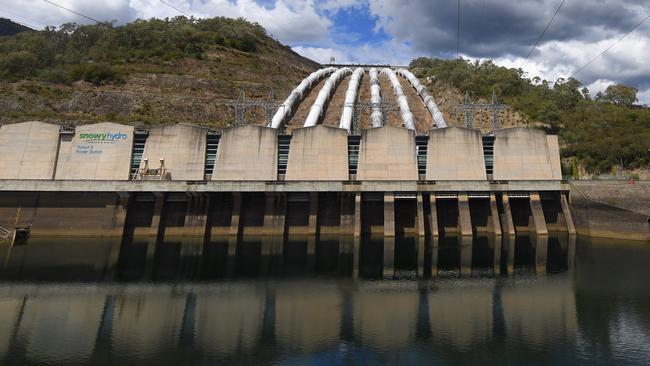Business is finally waking up to a gas crisis
Rising energy costs are changing the face of business in Australia, but there are reasons to be hopeful.

For the last two years most areas of business have not understood how governments were causing massive energy price rises, with more to come, and creating blackout dangers. Now suddenly energy pricing and availability is Australia’s number one business topic.
Business is waking up that there is a gas crisis and the state governments of NSW, Victoria and South Australia have vandalised their power systems.
And so this weeks Dun & Bradstreet’s Business Expectations Survey for the March quarter shows that an incredible 61 per cent of Australian businesses are being affected by rising energy costs.
Such a monumental blow is changing the face of business in Australia, so after a some really strong quarters in 2016, in the March quarter of 2017 the Dun & Bradstreet survey shows lower actual sales, profits, employment, selling prices and capital investment compared to the final quarter of 2016.
While my series of articles highlighting the fact that more prices rises and possible blackouts are in the pipeline will not have helped, it is important business knows the truth and adapts
It is not the use of renewables and gas that is the problem, but rather state governments failure to undertake the tasks properly.
But there are two pieces of good news which are important green shoots.
First the NSW government plans to embrace many of the anti-blackout measures that I set out this week in my comment How To Solve The Power Crisis, and adding others
This will greatly reduce, the risk of NSW blackouts this summer. Victoria’s problem is not as bad as NSW but they need to follow. South Australia is taking action. I look forward commenting on a NSW announcement expected in a few weeks.
And of course, secondly, Prime Minister Malcolm Turnbull and Energy Minister Josh Frydenberg have announced plans to effectively make available to the domestic market gas being produced by the Gladstone three (the Santos, Shell and Origin consortiums). Turnbull and Frydenberg are under huge pressure to cave in but the nation requires them to hold firm. The only issue is how it is done and the proportion of the blows that must land on the Santos consortium given they are causing most of the gas exodus from the local markets.
If Frydenberg does the detailed work, he will not only assist gas users but will also help mitigate the pressure for higher power prices.
The next step to overcoming the problem requires an even harder task for Turnbull and Frydenberg. They must tell Australians that the Coalition government in NSW and the Coalition opposition in Victoria are just as much to blame for the crisis as the ALP governments of Victoria and South Australia.
There is close mateship between the NSW government and the Prime Minister (just look at what happens in infrastructure) and it is not easy to tell your mates unpalatable truths. But it is in this case an absolute essential.
And just to underline this I was blown away this week to learn that despite all the publicity and fact revelations, the NSW Department of Planning & Environment made a submission to the NSW Planning Assessment Commission (PAC) supporting a wind farm near Lake George north of Canberra.
I have no problem with the wind farm in isolation but from what I can see no where in the submission did the officials set out the grid changes that would be required and the required back up emergency generation required to make the wind farm a reliable part of the power system. In other words NSW is still using the totally discredited “plonk” system of power generation advocacy where you ignore the real costs and the extra work required over and above “plonking” a form of power generation (it can be wind, solar, gas, nuclear, hydro or coal) on a site. Wind farms are good as long as the total costs are properly assessed.
If NSW has future blackout’s and/or big price rises the officials who made that submission maybe guilty of misleading the PAC and the community.
In think there are some good long term signs around in the Australian economy but we can no longer ignore the energy vandals.




To join the conversation, please log in. Don't have an account? Register
Join the conversation, you are commenting as Logout